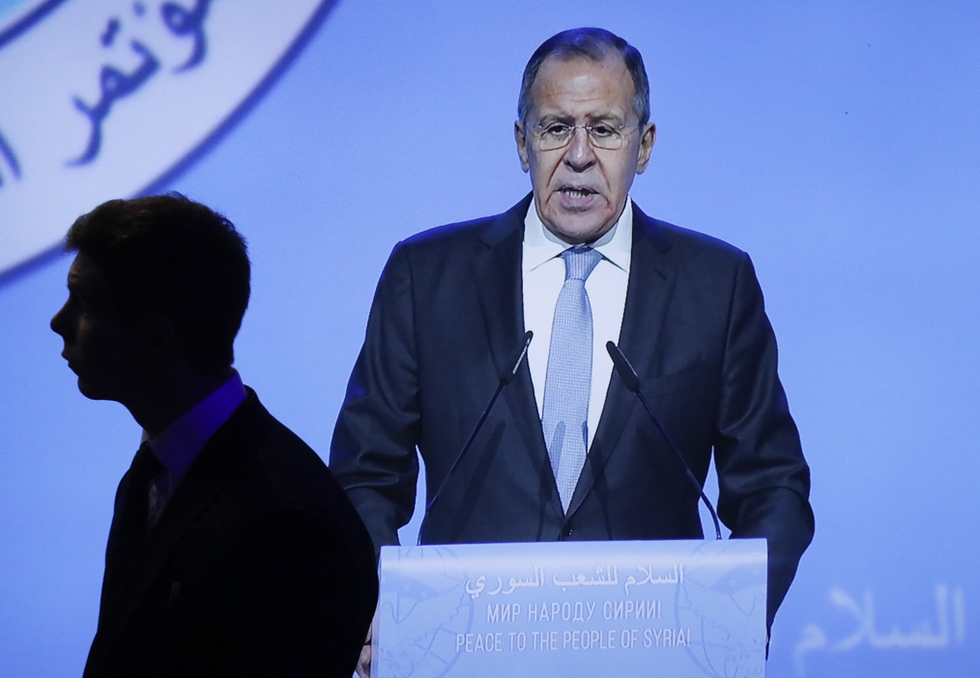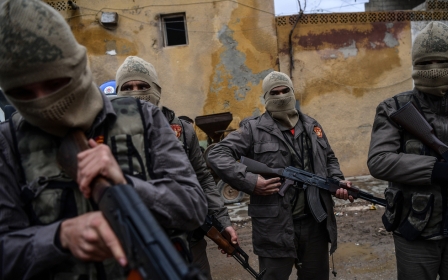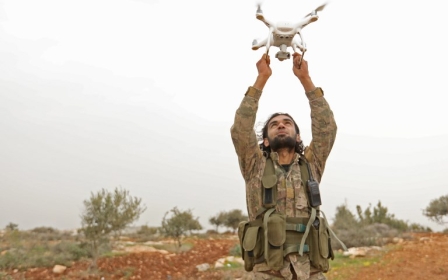Syria talks in Russia end without addressing opposition concerns

A Syrian peace conference in Russia ended on Tuesday with a statement calling for democratic elections but ignoring key opposition demands after a day marred by squabbles and heckling of the Russian foreign minister.
The participants also agreed to set up a committee to rewrite the Syrian constitution at the conference, which much of the opposition said aimed to serve the interests of President Bashar al-Assad and his close ally, Moscow.
A final statement said Syrians must decide their future through elections, but did not say whether Syrian refugees would be allowed to take part, something sought by Assad's opponents and Western states. Syrians had the "exclusive right" to pick their political system free of foreign intervention, it added.
It also urged the preservation of security forces without calling for their reform, another demand of the opposition.
"This conference is tailor-made for Assad and his terrorist regime," said Mustafa Sejari, a senior official in a Free Syrian Army (FSA) rebel group that operates in northern Syria. "The Sochi statement does not concern us and is not even a subject of discussion."
Russia hosted what it called a Syrian Congress of National Dialogue in the Black Sea resort of Sochi. After helping turn the tide of the war in Syria in the government's favour, Moscow cast itself as a Middle East peace broker.
The event was boycotted, however, by the leadership of the Syrian opposition, while powers such as the United States, Britain and France stayed away because of what they said was the Syrian government's refusal to properly engage.
Western countries support a separate United Nations-mediated peace process, which has so far failed to yield progress towards ending a war entering its eighth year. The latest round of those talks took place last week in Vienna.
"We don't need a new process, we don't need any competitive process," UN Syria envoy Staffan de Mistura, who attended the Sochi conference, told reporters in New York by phone on Monday.
While the conference took place, Russian analysts reframed the talks as a platform to discuss issues decided elsewhere, rather than a process in their own right, Neil Hauer, a freelance journalist, told Middle East Eye.
“It’s already a huge failure for the Russians because they invested so much political capital in this trying to set it up for months,” Hauer said.
It’s already a huge failure for the Russians because they invested so much political capital in this trying to set it up for months
- Neil Hauer, freelance journalist
One major failure, he said, is that the Kurds, who were supposed to be involved, in contrast to the Astana and Geneva talks, have boycotted in response to the Turkish offensive in Afrin.
“The other point was to get the opposition to recognise and accept a regime-dominated deal,” he said. “They didn't buy that either.”
Russian Foreign Minister Sergei Lavrov helped open the Sochi conference on Tuesday by reading out a statement from President Vladimir Putin saying the conditions were ripe for Syria to turn "a tragic page" in its history.
But some delegates stood up and began heckling him, accusing Moscow of killing civilians in Syria with its air strikes.
The incident was broadcast on Russian state TV where two security guards were shown approaching one man in the audience indicating that he should sit down.
Other delegates shouted out their support for Russia.
In a further setback, one group of delegates, which included members of the Syrian armed opposition who had flown in from Turkey, refused to leave Sochi airport until Syrian government flags and emblems - which they said were offensive - had been removed.
Turkish and Iranian government delegations attended the congress.
Vitaly Naumkin, a Russian expert on the Middle East who serves as an adviser to de Mistura, told reporters the problems encountered by organisers had not tarnished the event.
"Nothing awful happened," said Naumkin. "Nobody is fighting anyone else. Nobody is killing anyone. These were standard working moments."
New MEE newsletter: Jerusalem Dispatch
Sign up to get the latest insights and analysis on Israel-Palestine, alongside Turkey Unpacked and other MEE newsletters
Middle East Eye delivers independent and unrivalled coverage and analysis of the Middle East, North Africa and beyond. To learn more about republishing this content and the associated fees, please fill out this form. More about MEE can be found here.




